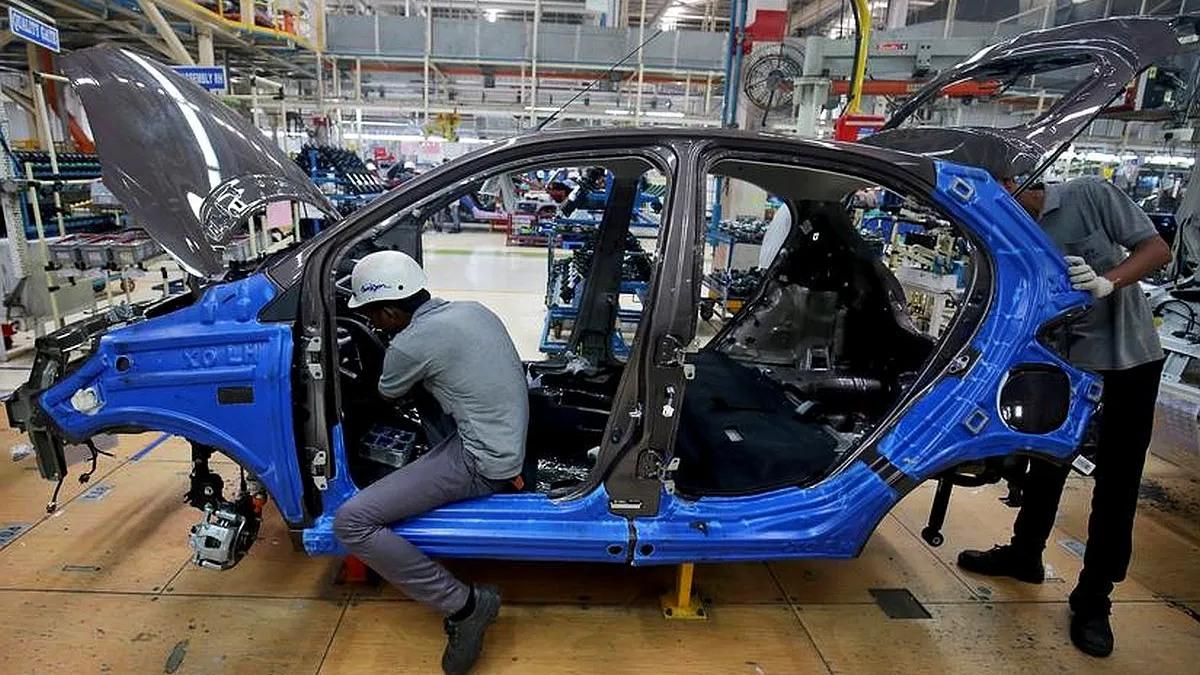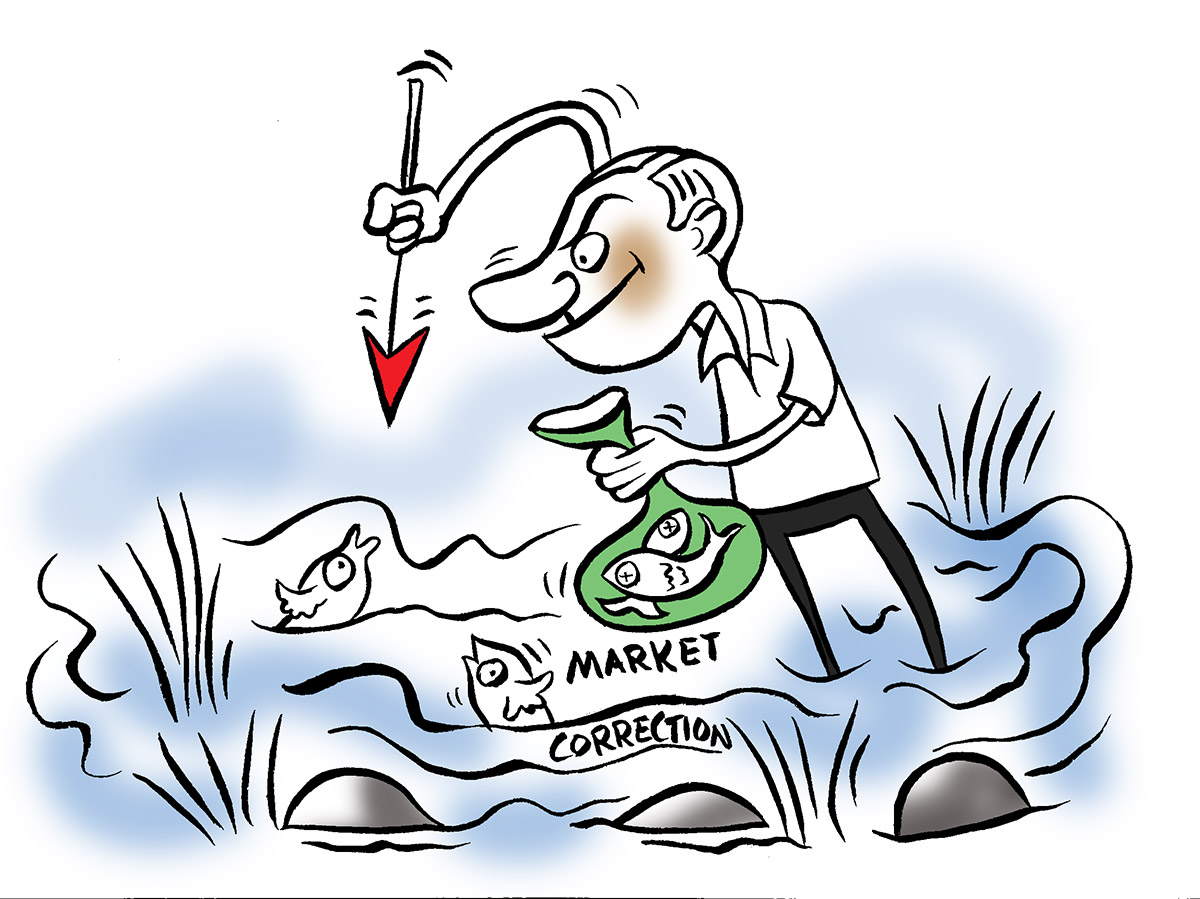The move offers flexibility in compliance but also places penalties squarely on the designated manager of such a pool.

Kindly note the image have only been published for representational purposes. Photograph: Amit Dave/Reuters/Rediff Archives
Automakers struggling to meet Corporate Average Fuel Economy (CAFE) standards will be allowed to form a pool with up to two other manufacturers, according to the draft notification of new fuel efficiency rules.
The move offers flexibility in compliance but places penalties squarely on the designated manager of such a pool.
The provision is expected to help companies with less fuel-efficient portfolios, such as those relying heavily on petrol- or diesel-run sport utility vehicles, as they will be able to combine their performance with manufacturers offering greener vehicles such as electric cars.
This is the first time that such an option has been introduced in CAFE norms.
The Bureau of Energy Efficiency (BEE), which works under the ministry of power, on Thursday issued draft CAFE-3 and CAFE-4 norms.
These will take effect from April 2027 and remain in place until March 2037.
The draft stated: “For the purpose of meeting their Annual Average Fuel Consumption Standard, manufacturers (not more than three) of said motor vehicles may decide to conclude a pool. A pool shall be considered as ‘one manufacturer’ for the purpose of compliance with Annual Average Fuel Consumption Standard.
“A manufacturer can only be a member of one pool in a given reporting period. Manufacturer nominated as the ‘pool manager’ will be the contact point for the pool and will be responsible for paying any penalty imposed on the pool in accordance with Energy Conservation Act, 2001.”
The regulation allows up to three companies to combine their fleets. Once pooled, their fuel consumption performance will be assessed as if they were a single manufacturer.
The rule also makes it clear that a manufacturer can only join one pool per year. While they cannot be part of two different pools in the same reporting period, they may switch pools in subsequent years.
One member of the pool must act as the ‘pool manager’. This company becomes the official contact point with the government and, if the pool fails to meet its target, will be held responsible for paying penalties under the Energy Conservation Act.
Saket Mehra, partner (Auto and EV), Grant Thornton Bharat, called original equipment manufacturer pooling a “standout” feature of the draft.
“This (pooling) enables strategic partnerships where manufacturers can balance fleet emissions, reduce compliance costs, and jointly meet regulatory targets. The designated pool manager will be legally accountable for any penalties under the Energy Conservation Act, 2001, adding a layer of governance and responsibility,” he said.
The draft norms issued were a revision of those released in June 2024. The revision follows intense debate within the automobile industry.
Maruti Suzuki had requested special relief for small cars under the CAFE-3 and CAFE-4 norms, while other carmakers, including Tata Motors and Mahindra and Mahindra, opposed such concessions.
The revised draft introduces special relief for small cars for the first time and offers incentives for flex-fuel and strong hybrid vehicles.
Mehra said: “The draft also recognises flex-fuel vehicles — those running on ethanol-petrol blends — alongside electric vehicles, expanding the compliance toolkit and supporting India’s biofuel ambitions. Importantly, the new norms are designed to revive the small car segment, which has seen a 71 per cent decline in sales over six years.
“In response, the government has rolled out GST 2.0 reforms, reducing the GST rate on small cars from 28 per cent to 18 per cent, making them more accessible to consumers.”
“Further, small cars (under 4 metres, below 909 kg, under 1,200 cc) are eligible for up to 9 g/km CO₂ relief, acknowledging their limited scope for efficiency upgrades and offering a regulatory cushion to small car manufacturers.
“Together, the CAFE-3 norms and GST reforms represent a balanced policy approach — driving decarbonisation while safeguarding affordability and competitiveness. Stakeholders are invited to submit feedback on the draft, which will shape the next decade of India’s mobility landscape,” he added.
Green goal
- Provision to help firms with less fuel-efficient vehicle portfolios
- The draft CAFE-3 and CAFE-4 norms will be effective from April 2027 to March 2037
- A manufacturer is permitted to be a member of only one pool per year
- The pooling allows strategic partnerships to balance fleet emissions and reduce costs
- New draft offers incentives for flex-fuel and strong hybrid vehicles
Feature Presentation: Rajesh Alva/Rediff



